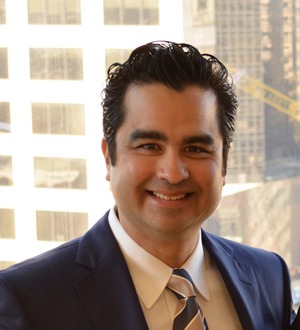
Partner at AKD Lawyers
Practice Areas: Personal Injury

Sports bring excitement, competition, and teamwork, but they also come with risks. Whether you’re an athlete pushing your limits, a coach guiding a team, or a parent watching from the stands, injuries are an unfortunate reality. But what happens when an injury isn’t just bad luck—when it’s caused by negligence, faulty equipment, or unsafe conditions? Who is legally responsible?
Most people assume that sports injuries are just “part of the game,” but that’s not always true. In many cases, athletes, coaches, schools, and even spectators have legal rights when injuries occur due to recklessness or preventable dangers. Understanding sports injury law can mean the difference between walking away with medical bills and getting the justice you deserve.
This guide will help you navigate the complexities of legal liabilities in sports, breaking down who can be held accountable and what steps you can take if you or a loved one is injured. Whether you’re playing on the field or watching from the stands, knowing your legal rights could protect you in ways you never expected.
Legal Responsibility in Sports Injuries
When athletes step onto the field, they assume a certain level of risk. However, not all injuries are simply part of the game. Some result from negligence, defective equipment, or unsafe conditions.
The law recognizes that different parties have different responsibilities in sports. Coaches, trainers, medical personnel, sports leagues, venue owners, and even equipment manufacturers can be held liable if their negligence leads to injury. In some cases, even spectators can seek legal recourse if they are injured at a sports event.
“Under Louisiana law, a party may be held liable for sports injuries if negligence, recklessness, or a failure to maintain a safe environment can be proven.”
Understanding who is responsible for a sports injury depends on the circumstances of the incident.
Athlete’s Responsibility and Assumption of Risk
Athletes understand that injuries are a natural part of sports, which is why many organizations require them to sign liability waivers. These waivers acknowledge that players accept the risk of injury while participating. However, they do not absolve an organization from liability in cases of gross negligence or recklessness.
For instance, if a football player knowingly plays with an injury and worsens it, the responsibility falls on the player. However, if the injury happened because the coach ignored clear medical advice, legal liability may shift.

“A waiver does not always protect an organization from liability—especially if gross negligence is involved.”
Athletes also must follow safety rules, use protective gear properly, and avoid unnecessary risks that could endanger themselves or others.
Liability of Coaches, Trainers, and Medical Staff
Coaches and trainers play a vital role in injury prevention. They are responsible for ensuring proper training, recognizing signs of fatigue, and stopping play when necessary. When they fail in these duties, they can be held accountable for sports injuries caused by negligence.
A coach pushing a young athlete beyond safe limits or ignoring obvious signs of concussion could be legally responsible if that athlete suffers severe injuries. Similarly, athletic trainers and doctors must provide proper diagnoses and treatment.
When medical professionals misdiagnose an injury or recommend improper rehabilitation, it can lead to permanent damage. A player who is rushed back into action before fully recovering may suffer long-term consequences due to poor medical decisions.
“The National Athletic Trainers’ Association recommends that all sports teams implement concussion protocols to minimize long-term brain injuries.”
Legal Responsibility of Equipment Manufacturers
Sports safety gear plays a crucial role in preventing injuries. Helmets, pads, gloves, and shoes are designed to minimize impact and protect athletes. However, when these products are defective, they can cause severe harm.
Manufacturers can be held liable if:
- Equipment is defectively designed (e.g., a helmet that doesn’t provide proper impact protection).
- There is a manufacturing defect that makes the product unsafe.
- They fail to provide adequate safety warnings about product limitations.
For instance, if a football helmet fails to protect a player from a concussion despite being used correctly, the manufacturer may be responsible.
“In product liability cases, manufacturers must prove that athletes used the equipment as intended to avoid legal claims.”
Sports Venue Liability and Spectator Injuries
The safety of a sports venue is just as important as the safety of the players. Owners and operators of sports facilities must maintain safe conditions for both athletes and spectators.
Common venue hazards include:
- Poorly maintained fields or courts lead to slips and falls.
- Inadequate crowd control measures result in spectator injuries.
- Insufficient protective barriers in high-risk areas.
If a stray baseball hits a spectator at a stadium without proper netting, the venue may be liable. Similarly, a player injured by unsafe field conditions could have grounds for legal action.
School and Organized Sports Liability
School sports programs and organized leagues must prioritize safety. Schools are responsible for ensuring that:
- Coaches are adequately trained.
- Equipment is well-maintained.
- Facilities meet safety standards.
Negligence in these areas can result in legal claims against schools, athletic associations, and event organizers. A student-athlete injured due to an unmaintained field or lack of proper medical supervision could file a lawsuit against the school or league.

Liability Breakdown in Sports Injuries
|
Party |
Potential Liability |
Example |
| Athletes | Self-inflicted injuries due to risky behavior | Ignoring injury warnings |
| Coaches/Trainers | Negligence in training, pushing injured players | Forcing player to continue post-concussion |
| Medical Staff | Misdiagnosis, improper treatment | Failing to diagnose torn ligament |
| Equipment Manufacturers | Defective safety gear, improper warnings | Helmet failure in football |
| Sports Venues | Unsafe playing conditions, lack of safety measures | Slippery court causing falls |
| Schools/Leagues | Failure to provide safe facilities | Poor field maintenance leading to injury |
Filing a Lawsuit for a Sports Injury
If you’ve been injured while playing sports or attending a sports event, taking the proper steps is crucial. Start by documenting the injury, gathering witness statements, and reporting the incident to the authorities.
Determining liability requires legal expertise. Consulting a sports injury lawyer can help assess whether a lawsuit is the best course of action.
FAQs
What legal options do I have if I’m injured while playing sports?
If your injury resulted from negligence, defective equipment, or unsafe conditions, you may be able to file a personal injury claim. A sports injury lawyer can assess your case and guide you on the best legal steps.
Can I sue my school or league for a sports injury?
Yes, if the school or league failed to provide proper safety measures or supervision. Schools must maintain safe facilities and ensure coaches follow safety protocols.
Do waivers prevent me from filing a lawsuit?
Not always. Waivers acknowledge inherent risks but do not protect organizations from liability if gross negligence, recklessness, or safety violations are involved.
What should I do immediately after a sports injury?
Get medical help, record your injuries with pictures and witness accounts, and inform those responsible authorities about what happened. Consulting a lawyer can help you understand your legal options.
Are spectators covered under sports liability laws?
Yes. If a spectator is injured due to unsafe venue conditions or lack of protective barriers, they may have grounds for a premises liability claim.
Conclusion
Sports injuries are common, but they don’t always happen by accident. When negligence is involved, injured players and spectators have the right to seek legal recourse. Understanding who is responsible for a sports injury is the first step in protecting your rights.
If you or a loved one has been injured due to sports-related negligence, consulting with experienced sports injury lawyers can provide clarity on the legal options available. Alvendia, Kelly & Demarest have extensive experience handling sports injury cases and can help you with the legal process.
Reach out today to discuss your case and explore your legal options.
Categories

In 2003, after being dissatisfied with the quality of legal care for victims of car accidents, Roderick ‘Rico’ Alvendia sought to establish a new firm focused on providing high-quality legal services to aid injured victims and their families. J. Bart Kelly, sharing Rico’s passion for upholding justice, joined the firm later that year, and established a partnership.






